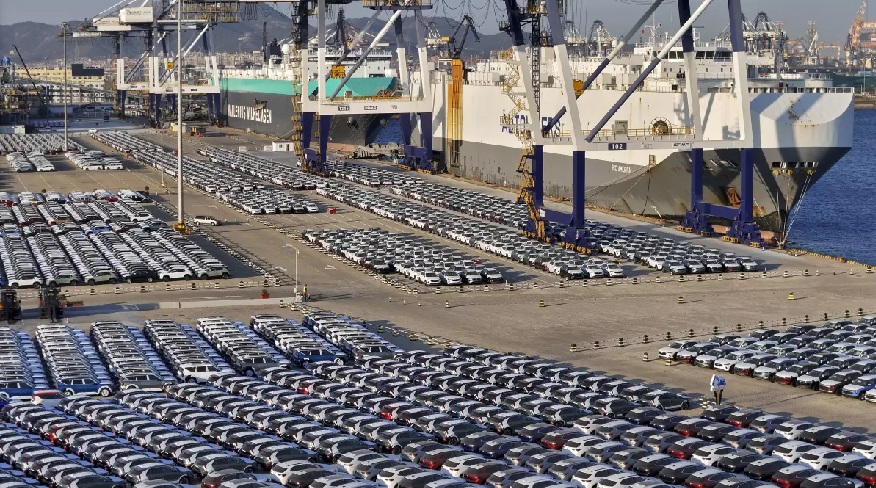This Tuesday, the China Chamber of Commerce reported to the European Union a 30% drop in exports of electric vehicles (EVs) from the Asian giant to the EU territory in June compared to figures from a year ago, with a total of 27,180 units sold.
Furthermore, during the first half of 2024, exports totalled approximately 222,000 units, down from nearly 260,000 in the same period of 2023, reflecting a year-on-year decline of 14.6%.
The organisation warns that the increase in registrations, based on consumer behaviour, was influenced by “dealer manoeuvres” rather than a rise in direct customer demand, as Chinese manufacturers accounted for only 12.4% of the EU’s EV registrations in June, up by 2% from a year ago.
In this context, the European Commission’s imposition of tariffs on the trade of Chinese electric vehicles has highlighted “discontent and uncertainty” within the sector regarding the EU’s protectionist policies, according to the organisation.
“The negative effects of the trade investigation, bilateral relations, and global efforts against climate change are becoming increasingly evident,” said a spokesperson for the China Chamber of Commerce in Brussels.
Regarding China’s complaint to the World Trade Organization (WTO) over the automotive tariffs, the organisation believes it was “predictable” following the complaints lodged by Chinese companies, which have “systematically” criticised the application of “unfair” measures during the investigations by European officials.
“Tariffs will be counterproductive, and it is crucial that China and the EU seek a constructive solution to the trade friction over electric vehicles, whether through bilateral or multilateral channels,” they asserted, adding that manufacturers expect a fair solution for all and hope that the European political environment “becomes more favourable” to business interests.
From Brussels, the European Commission Vice-President and Trade Commissioner, Valdis Dombrovskis, expressed confidence last week that member states will back the tariffs in November, making them permanent.
“It is clear that member states are aware of the need to protect the EU automotive industry because the risk of losing ground is there. The market share of Chinese battery electric vehicles is growing very rapidly and the subsidies are there, so it is undoubtedly an issue that needs to be addressed.”
To date, the market share of Chinese brands in the European electric vehicle market, including the UK and Norway, has increased to 11% from 9% a year ago, according to data from consultancy Dataforce.







